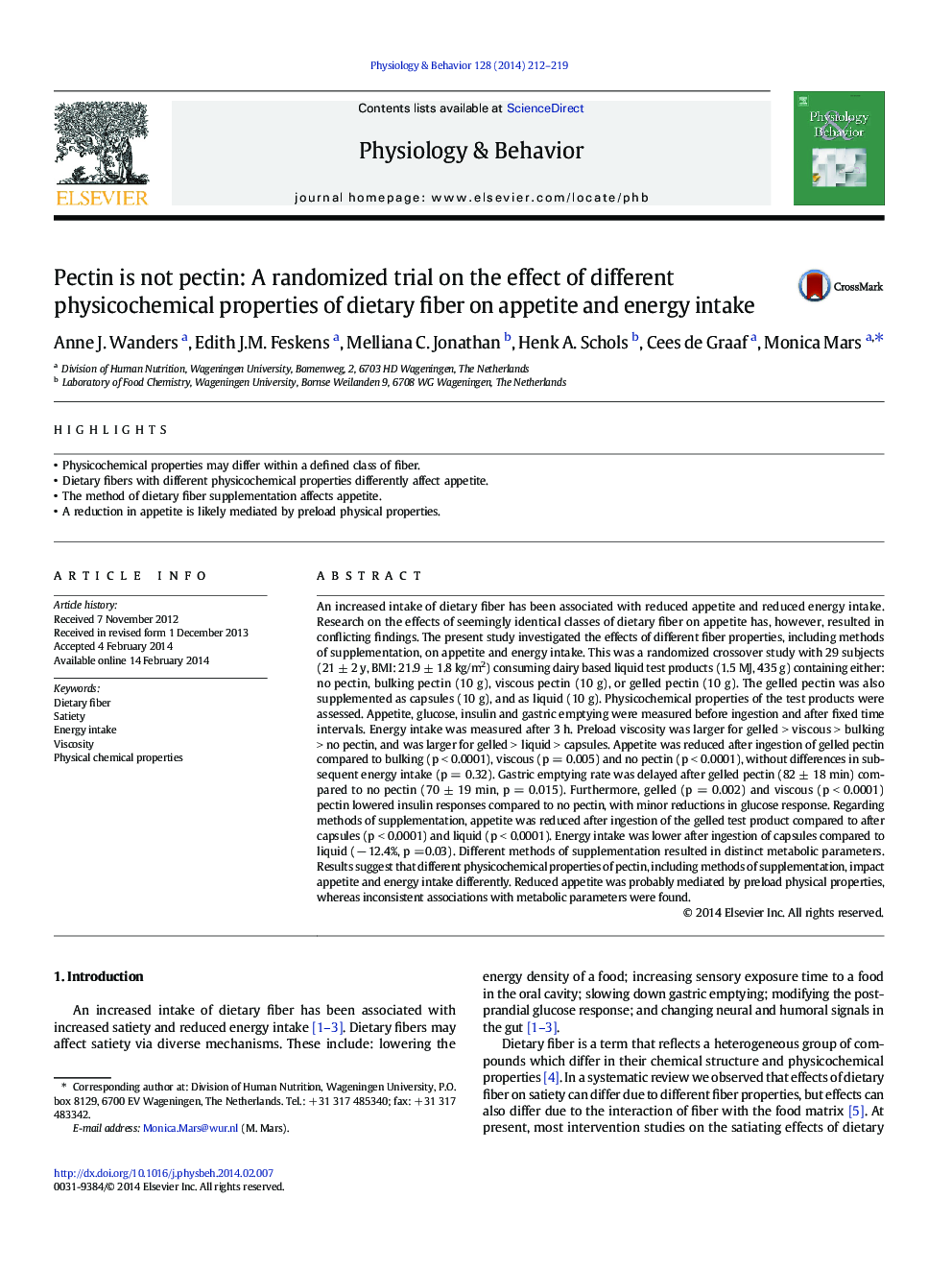| کد مقاله | کد نشریه | سال انتشار | مقاله انگلیسی | نسخه تمام متن |
|---|---|---|---|---|
| 5924469 | 1571189 | 2014 | 8 صفحه PDF | دانلود رایگان |
- Physicochemical properties may differ within a defined class of fiber.
- Dietary fibers with different physicochemical properties differently affect appetite.
- The method of dietary fiber supplementation affects appetite.
- A reduction in appetite is likely mediated by preload physical properties.
An increased intake of dietary fiber has been associated with reduced appetite and reduced energy intake. Research on the effects of seemingly identical classes of dietary fiber on appetite has, however, resulted in conflicting findings. The present study investigated the effects of different fiber properties, including methods of supplementation, on appetite and energy intake. This was a randomized crossover study with 29 subjects (21 ± 2 y, BMI: 21.9 ± 1.8 kg/m2) consuming dairy based liquid test products (1.5 MJ, 435 g) containing either: no pectin, bulking pectin (10 g), viscous pectin (10 g), or gelled pectin (10 g). The gelled pectin was also supplemented as capsules (10 g), and as liquid (10 g). Physicochemical properties of the test products were assessed. Appetite, glucose, insulin and gastric emptying were measured before ingestion and after fixed time intervals. Energy intake was measured after 3 h. Preload viscosity was larger for gelled > viscous > bulking > no pectin, and was larger for gelled > liquid > capsules. Appetite was reduced after ingestion of gelled pectin compared to bulking (p < 0.0001), viscous (p = 0.005) and no pectin (p < 0.0001), without differences in subsequent energy intake (p = 0.32). Gastric emptying rate was delayed after gelled pectin (82 ± 18 min) compared to no pectin (70 ± 19 min, p = 0.015). Furthermore, gelled (p = 0.002) and viscous (p < 0.0001) pectin lowered insulin responses compared to no pectin, with minor reductions in glucose response. Regarding methods of supplementation, appetite was reduced after ingestion of the gelled test product compared to after capsules (p < 0.0001) and liquid (p < 0.0001). Energy intake was lower after ingestion of capsules compared to liquid (â 12.4%, p = 0.03). Different methods of supplementation resulted in distinct metabolic parameters. Results suggest that different physicochemical properties of pectin, including methods of supplementation, impact appetite and energy intake differently. Reduced appetite was probably mediated by preload physical properties, whereas inconsistent associations with metabolic parameters were found.
Journal: Physiology & Behavior - Volume 128, 10 April 2014, Pages 212-219
